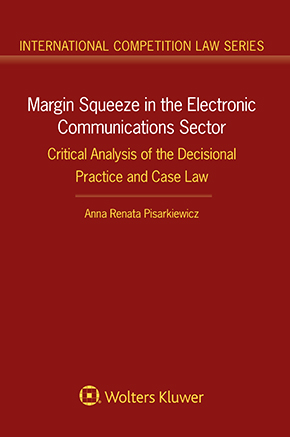
Margin Squeeze in the Electronic Communications Sector provides an in-depth analysis of margin squeeze allegations in the electronic communications sector.
Margin squeeze is a form of abuse of a dominant position in which a vertically integrated company reduces the margin between the price charged to competitors and the price charged to consumers, which can have the effect of excluding a competitor from the market.
In the decade or so since the liberalisation of network industries, margin squeeze has become a major source of concern among competition authorities and courts, particularly pronounced in the electronic communications sector.
Because some of the adopted decisions show significant inconsistencies in approach, and legal certainty remains elusive in this area, this book which provides an advanced and comprehensive analysis of principles guides the ex post assessment of margin squeeze.
What’s in this book:
Issues and topics covered include:
How this will help you:
The increasing complexity of the electronic communications market can only further confound an already complex assessment of price squeezes, and one can expect that claims of anticompetitive margin squeeze in liberalised network industries will continue to be high on the enforcement agenda of competition authorities for years to come. In light of the need for a coherent, or at least predictable, sentencing policy to provide relative legal certainty, the research in this book proves invaluable. The analysis and conclusions discussed in this book will be welcomed by policymakers, regulators, and lawyers working in the areas of competition law and electronic communications law.